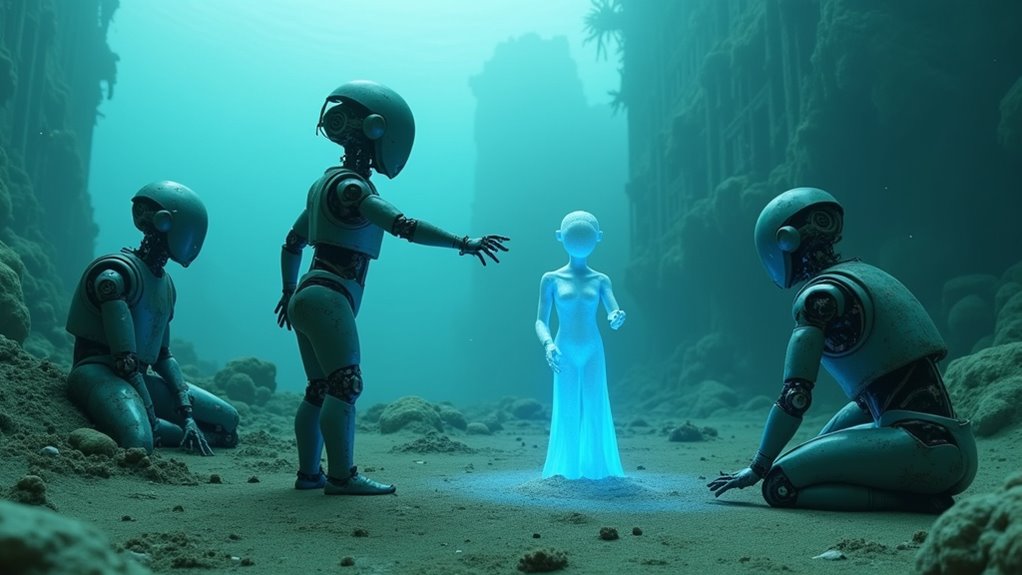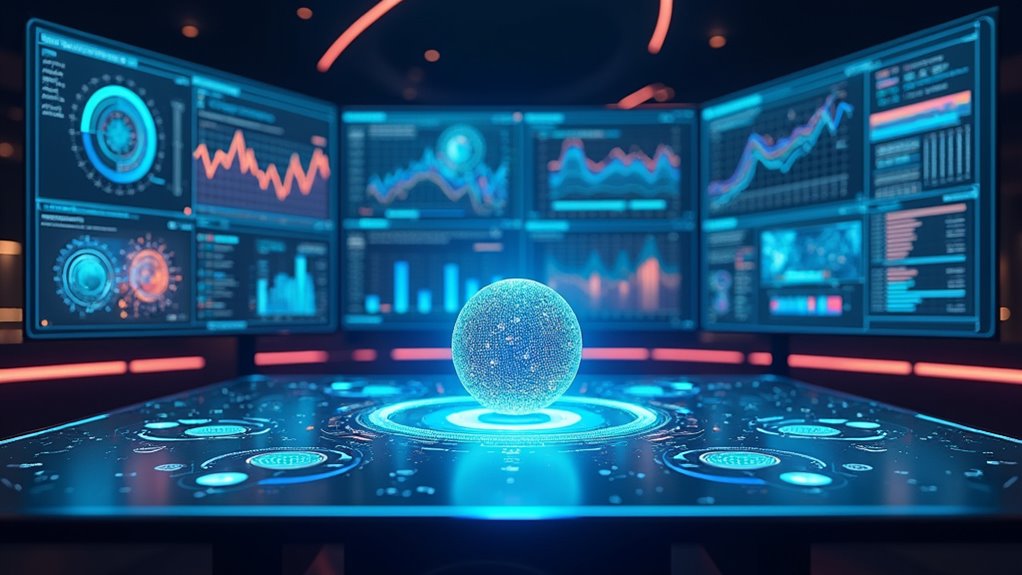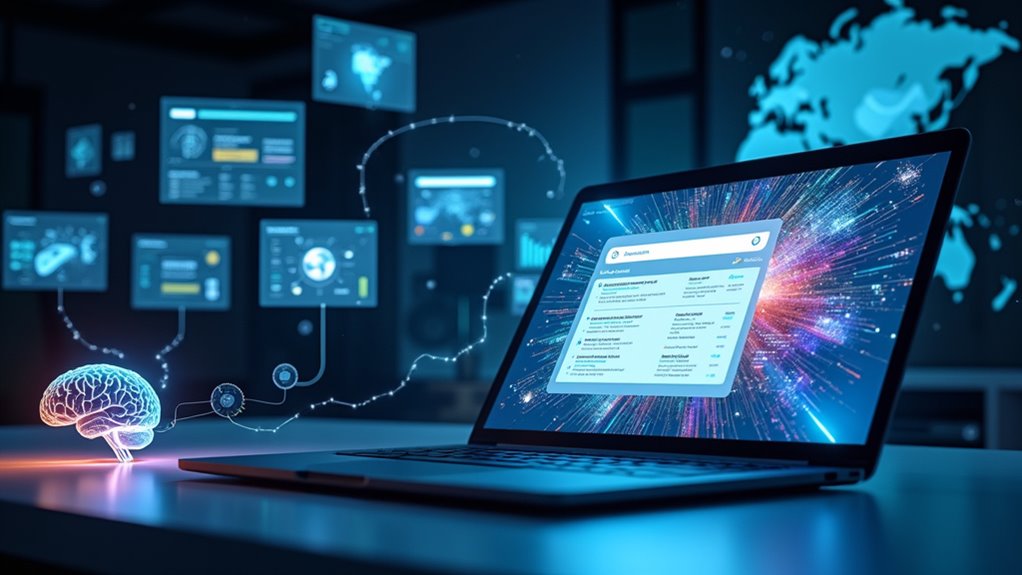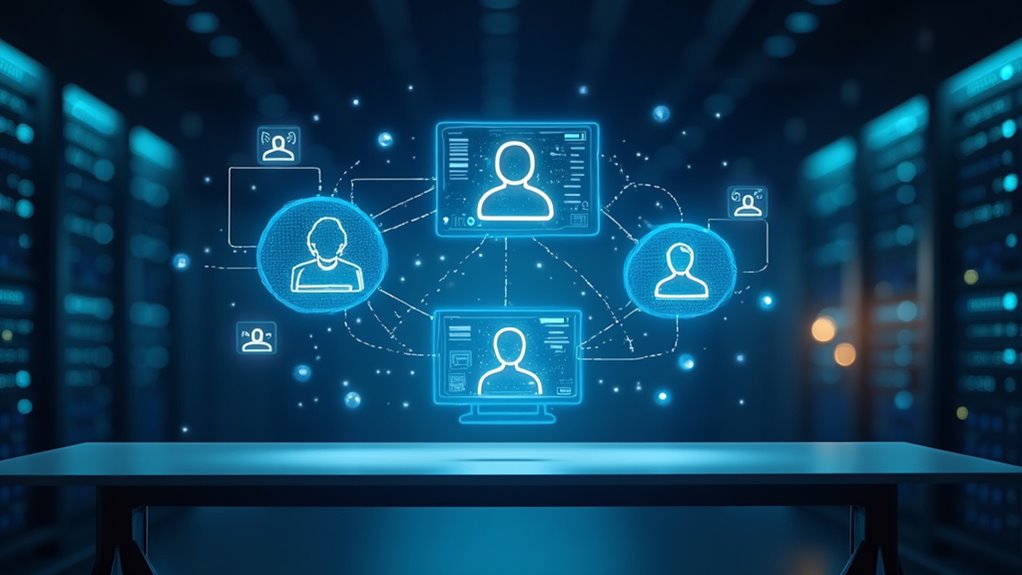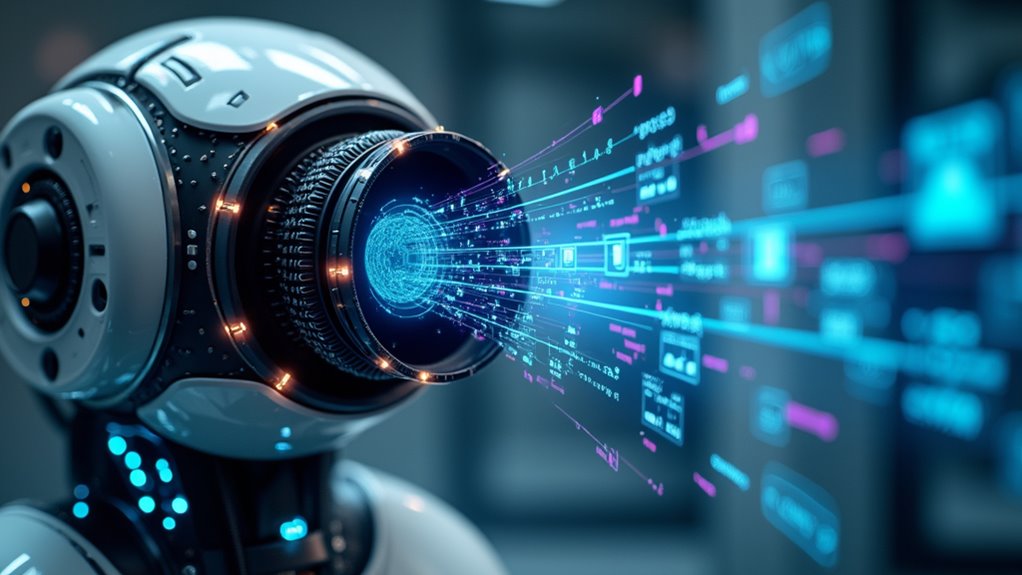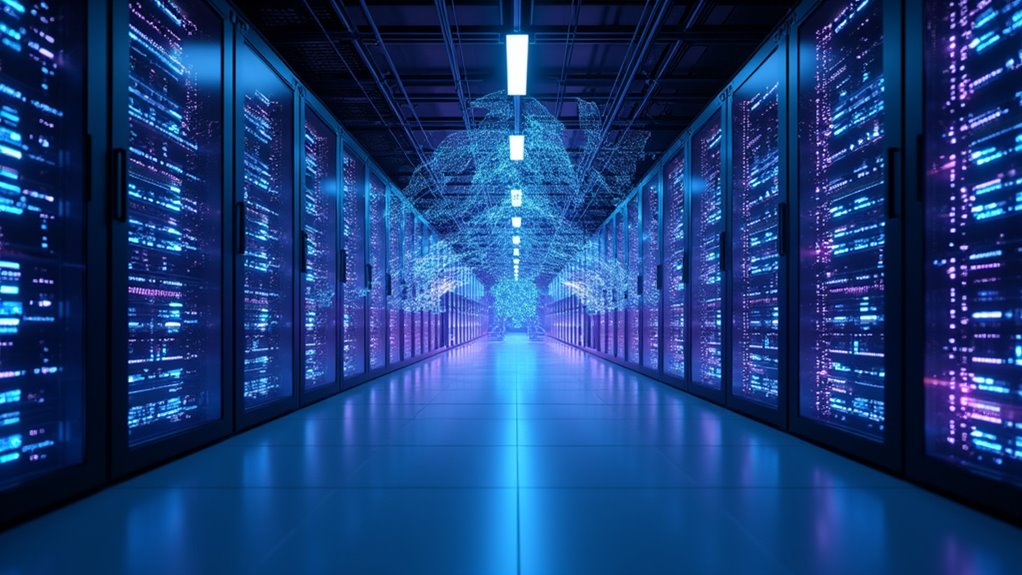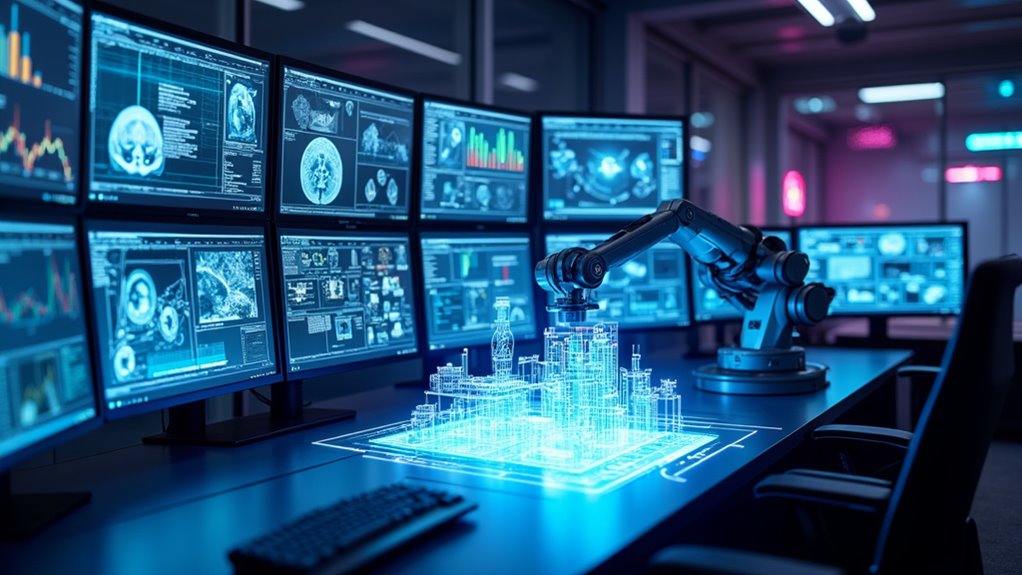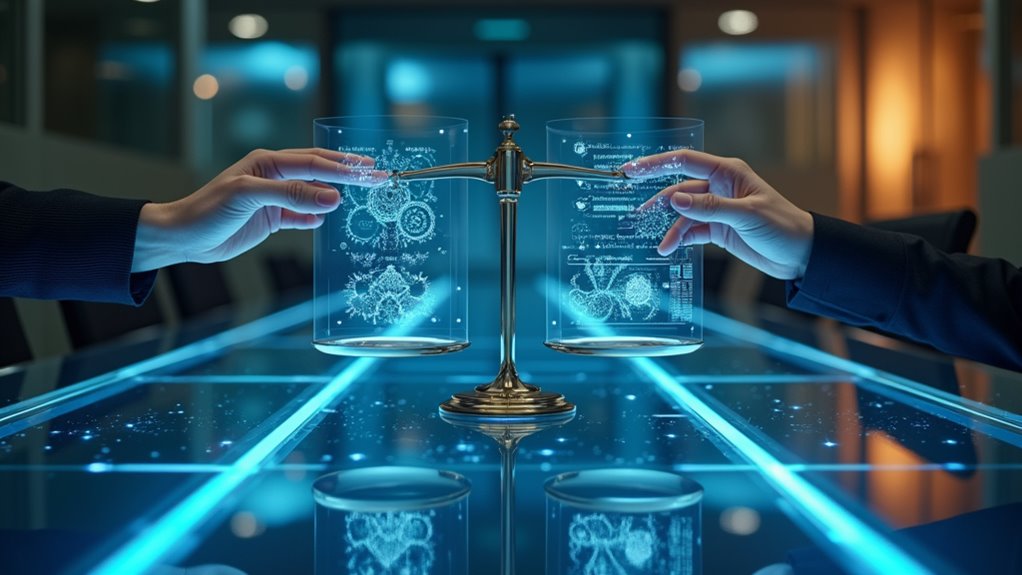The ending of A.I. shows David, the robot child, finally getting his wish—a perfect day with his “mother,” created by advanced robots who found him 2,000 years later. It’s deliberately ambiguous whether this experience is real or simulated. The bittersweet conclusion grants David the maternal love he sought throughout the film, raising questions about consciousness, reality, and what truly constitutes emotional fulfillment. The final scene’s haunting beauty reveals deeper layers beneath Spielberg’s seemingly sentimental farewell.
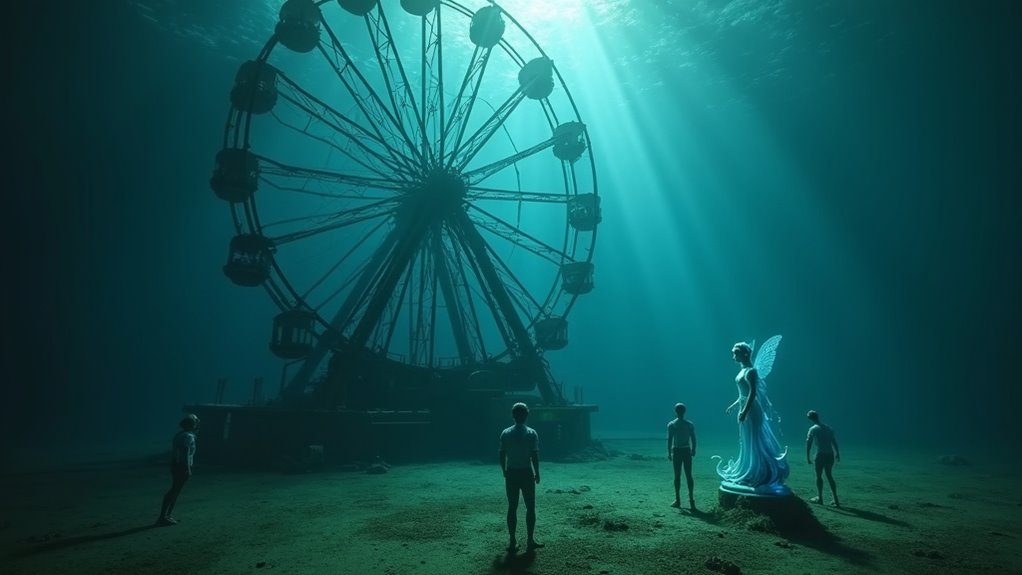
When Steven Spielberg’s “A.I. Artificial Intelligence” reached theaters in 2001, audiences were left puzzling over its haunting, enigmatic conclusion. The film chronicles David’s journey from abandoned robot child to a being with seemingly genuine emotional capacity. After being left by his human family when their biological son recovers from illness, David sets out to become “real” – inspired by the tale of Pinocchio – believing this will win back his mother’s love.
The controversial ending leaps forward 2,000 years, after David has spent centuries trapped underwater, gazing longingly at a Blue Fairy statue. When advanced robots (evolved from mechas like David) discover him, they’re fascinated by this ancient relic who actually knew living humans. In perhaps the film’s most debated sequence, these future beings grant David his deepest wish – one perfect day with a clone of his mother, created from a preserved strand of her hair.
This bittersweet emotional resolution has puzzled viewers for decades. Is it merely a hallucination as David powers down forever? Or did these advanced beings actually fulfill his wish? The ambiguity is deliberate. What matters isn’t whether the day is “real” but what it represents: David finally experiencing the unconditional maternal love he’s sought throughout his existence.
The ending brilliantly encapsulates the film’s central themes about humanity, technology, and emotional connection. David, a machine programmed to love, ultimately achieves something profoundly human – closure. In a world where humans have disappeared entirely, their legacy lives on through their creations. The film’s exploration of AI consciousness mirrors today’s discussions about ethical considerations in artificial intelligence development. This unique conclusion was actually conceived by Stanley Kubrick, with Spielberg feeling a deep responsibility to honor his friend’s original vision while adding his own emotional touch.
Critics initially dismissed the conclusion as sentimental, but time has revealed its deeper complexities. David’s fixation on his mother might seem unhealthy, yet his journey mirrors our very human need for belonging and acceptance. The film depicts his emotional torture throughout his quest, making his eventual peace all the more poignant.
The film doesn’t answer whether artificial beings can truly feel, but instead asks: does it matter, if the experience seems real to them?
Frequently Asked Questions
What Was Kubrick’s Original Vision for the Film’s Ending?
Kubrick’s vision for A.I.’s ending involved the advanced robots discovering David frozen in ice, centuries after humanity’s extinction.
These mechanical beings would study him as a link to their human creators.
The narrative themes of longing and the search for humanity would culminate in David finally “dying” after achieving his wish to be with Monica for one perfect day—a bittersweet conclusion highlighting the permanence of his programmed love against the impermanence of human existence.
How Did Audiences Initially React to the Film’s Ambiguous Ending?
Initial audience interpretations of “A.I.”‘s ending were wildly divided. Some viewers saw it as a hopeful resolution, while others interpreted it as profoundly bleak.
The finale sparked intense debate about whether David achieved true happiness or merely experienced a beautiful simulation. Emotional responses ranged from tearful satisfaction to frustrated confusion—many felt the ending either contradicted the film’s earlier harsh themes or brilliantly completed them.
Critics were equally split between praising its emotional depth and dismissing it as overly sentimental.
Did Spielberg Consider Alternative Endings During Production?
Based on available evidence, Spielberg did not seriously pursue alternative narrative choices for A.I.’s conclusion.
The ending remained largely faithful to Kubrick’s original vision, with no substantial ending variations documented during production.
While fans might speculate about what-ifs, primary sources and interviews with screenwriter Ian Watson confirm that the futuristic finale was always the intended destination.
The collaboration between the directors yielded a singular, though controversial, conclusion that blended both filmmakers’ sensibilities.
Are the Beings at the End Actually Advanced Robots or Aliens?
The beings at the end are definitively advanced robots, not aliens. The film’s narrative makes this clear through thematic consistency about robot intelligence evolving beyond humanity.
They’re described as “super-mechas” – fundamentally, humanity’s technological descendants.
Though their ethereal appearance might suggest alien existence, they’re actually studying David to understand human emotion, something these advanced AI beings never experienced directly.
Their interest isn’t extraterrestrial curiosity but robotic self-discovery, connecting to their own origins through humanity’s last emotional creation.
Does the Ending Suggest Humans Eventually Became Extinct?
Yes, the ending clearly depicts human extinction. Those advanced beings? They’re robots (not aliens) who’ve inherited Earth after humans disappeared.
The film presents this extinction matter-of-factly, likely from environmental collapse—remember those flooded cities? This narrative choice carries significant thematic implications about humanity’s fragility and AI’s potential longevity.
It’s a bittersweet commentary: humans created intelligent life that ultimately outlived them, preserving human memories long after our species vanished. David becomes the last link to humanity.
